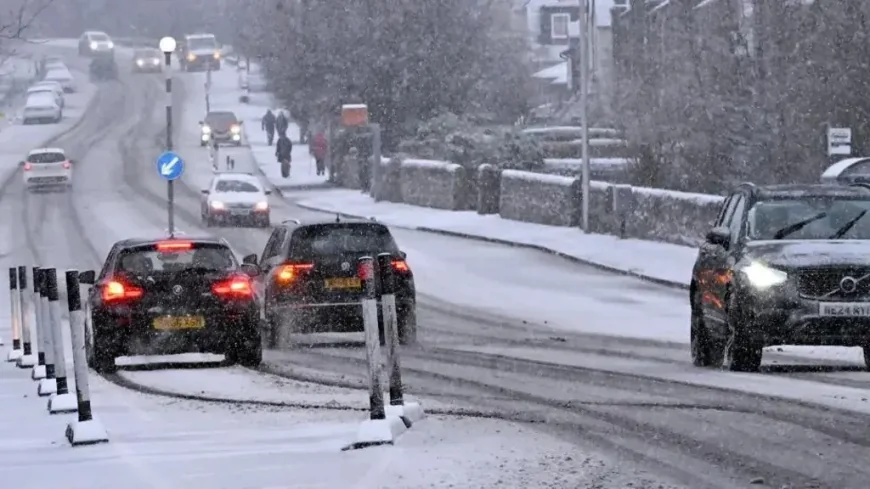Four days of snow and ice expected to disrupt travel
Much of Scotland will be in disarray for four days as snow and ice continue to lash the country.

The Met Office has issued a yellow warning for possible snowfall for the Grampians and Highlands from Monday evening to Tuesday morning.
A yellow warning for snowfall and ice has been issued for the same region from Tuesday evening to Thursday night.
This warning also applies to Strathclyde, Central Scotland, Tayside and Fife, and Orkney and Shetland.
The third yellow warning, which will last from 5:00 a.m. until noon on Tuesday, covers several areas, including the Lothian region.
Last week, parts of the Highlands received the first snowfall of the winter season.
The Met Office warned on Monday: "Keep yourself and your family safe during snowfall. Plan to leave home at least five minutes earlier than usual. Not rushing reduces the risk of accidents, slips, and falls."
"If you must travel on foot, try to use footpaths alongside main roads, which are less likely to be slippery. Similarly, if you are cycling, try to stick to main roads where road conditions have been checked.
"If you are driving, take the best possible approach to avoid delays by checking road conditions, bus and train timetables, and changing your travel plans if necessary."
Meteorologist Claire Nasir told BBC Radio's Good Morning Scotland program that the coming weather will bring a mix of extremely cold and strong winds.
She said the weather in early November was "extremely" mild, but there was also "a lot" of rain.
This means there's an increased risk of snowfall in the coming week, with temperatures dropping below zero, causing water to freeze.
She predicted significant snowfall, particularly in the Highlands, could cause disruption.
"Winter has arrived early," she said.
November has been much milder so far than in previous years.
Nighttime temperatures at this time of year range from 2°C in Scotland to 5°C in the south of England.
Temperatures rarely reached single digits during the first week of November, instead ranging between 10°C and 14°C.
Last November, parts of northern Scotland recorded temperatures below -10°C, including Braemar in Aberdeenshire, where the lowest temperature reached -11.2°C.
The last time a temperature of -10.9°C or lower was recorded on November 19 or earlier was in 1998.
Last week, Scottish transport operators outlined their winter resilience plans.
This included stockpiling 497,000 tonnes of salt – more than used in the entire previous winter – and preparing 240 gritters to spread salt and remove snow on the main road network.
Winter in Scotland officially lasts from December to February, but in recent years winter has lasted as late as May.
What's Your Reaction?
 Like
1
Like
1
 Dislike
0
Dislike
0
 Love
0
Love
0
 Funny
0
Funny
0
 Angry
0
Angry
0
 Sad
0
Sad
0
 Wow
0
Wow
0










































